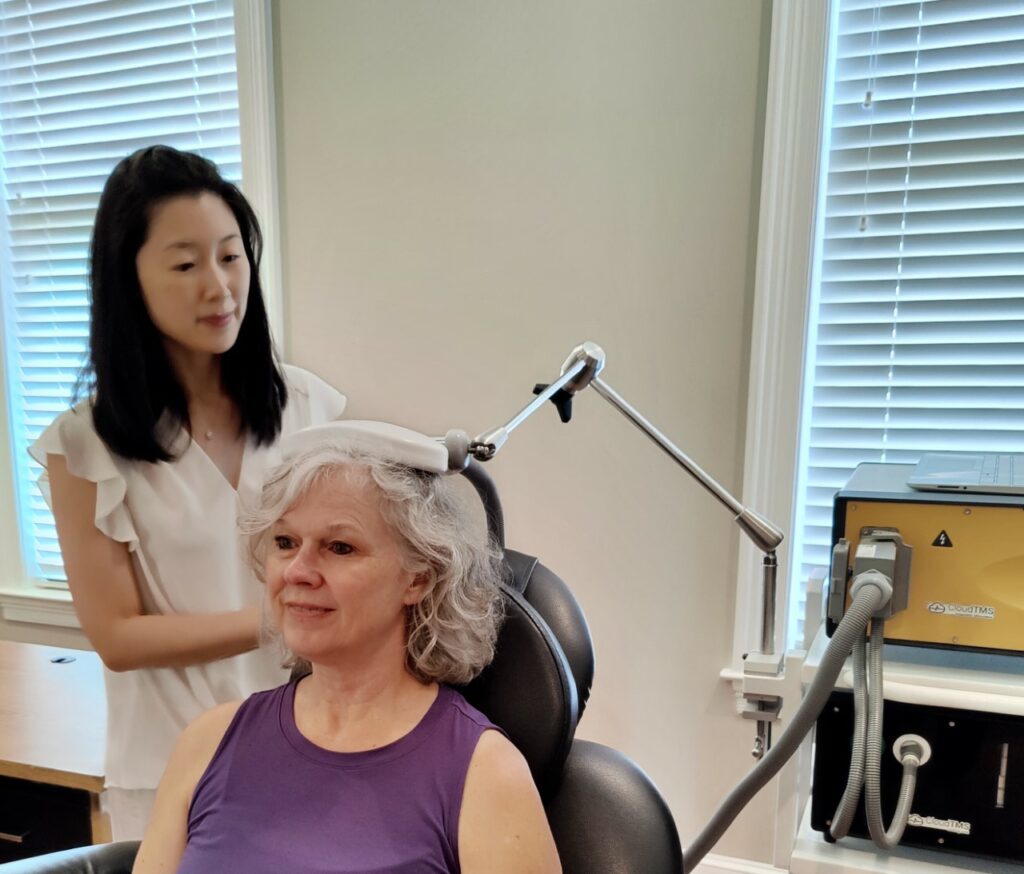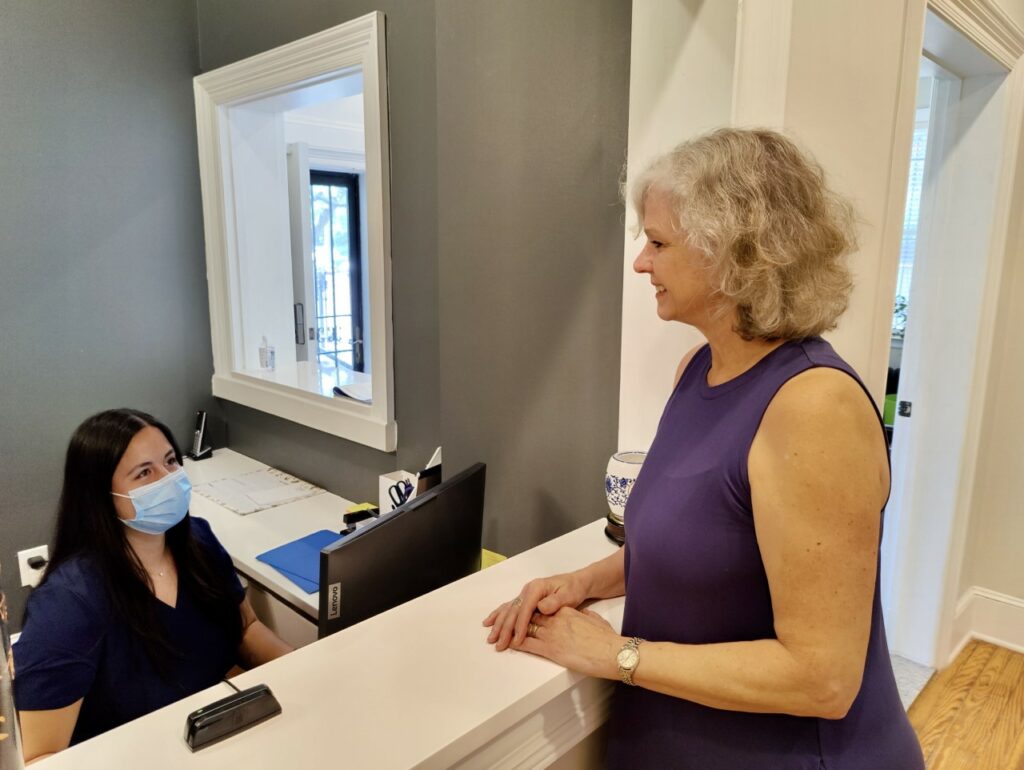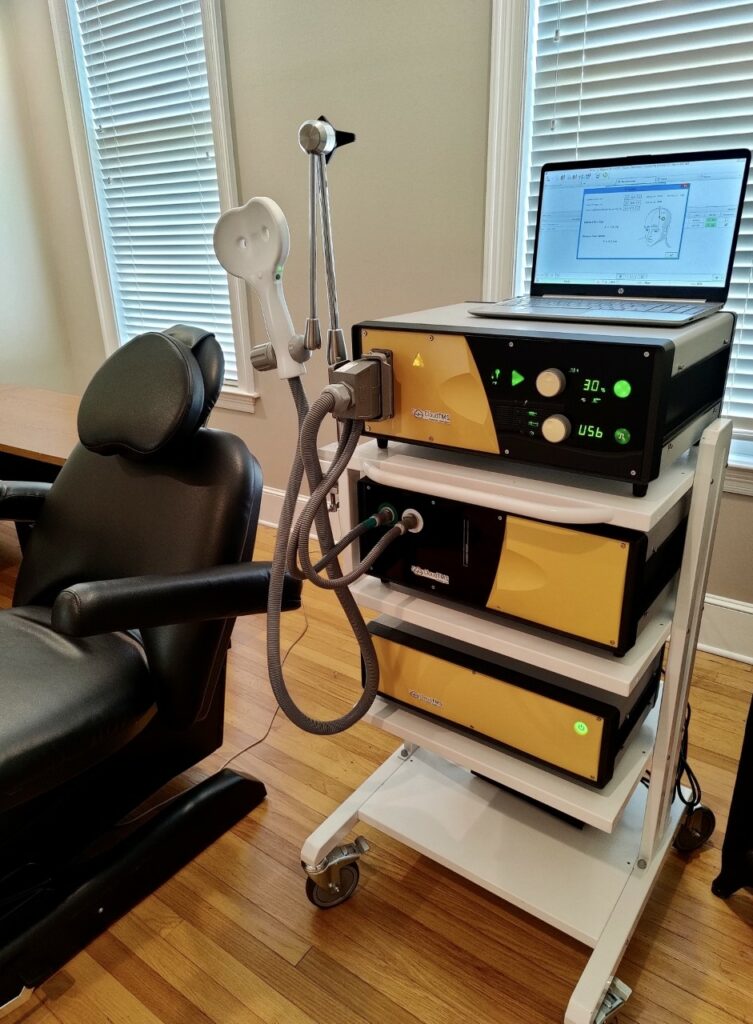Please visit Integrative Neuroscience to learn more about TMS Therapy & Depression Treatment.
Express TMS Therapy
EXPRESS TMS WITH A HIGH SUCCESS RATE
With our express TMS (transcranial magnetic stimulation) protocol for treating depression, many patients see significant improvement in their mood in just 10 days! Typically, the total treatment time takes around 15 to 20 minutes. While the treatment is being administered, you get to sit comfortably in a reclinable chair. Learn more about express tms therapy for depression and anxiety below.
A standard customized treatment schedule tends to consist of daily treatment sessions 5 days a week for about two weeks. More than 90% of our clients with depression and anxiety have responded well to this treatment protocol and have noticed a significant improvement in their mood. Transcranial magnetic stimulation is both safe and effective and has had FDA approval since 2013.
Patients who have failed to receive satisfactory improvements in symptoms from counseling and prescription medication treatments may see better results with TMS. The therapy has limited side effects and has been proven to be effective for the treatment of resistant depression and anxiety.

FIND YOUR BRAIN BODY BALANCE
At Brain Body Balance, our physicians are board-certified neurologists who offer a personalized treatment plan that effectively treats major depressive disorder and anxiety along with other commonly associated depression symptoms such as brain fog, sleep issues, and low energy.
Compared to other TMS providers who utilize a ‘cookie-cutter’ standard approach for each patient, our physicians actually listen to each patient’s concerns. We tailor every treatment plan to the individual needs of each person we see for optimal treatment response and a higher likelihood of success.
What is TMS?
Transcranial Magnetic Stimulation is a cutting-edge, non-invasive, non-drug therapy that uses magnetic energy pulses to improve and normalize brain function. Specific parts of the brain may be safely stimulated to enhance brain cell-to-cell connectivity and modulate neural networks to create a “balanced” state of mind and achieve optimal brain function. TMS is a treatment of depression, anxiety, and used to effectively treat and manage a variety of mental health conditions.
Being a non-invasive therapy means that it does not involve surgery. It does not require any anesthesia or sedation, as you remain awake and alert during the treatment. It is also non-systemic, meaning it does not affect other areas of the body like medications can.
For best results, it is highly recommended to complete at least a course of 10 sessions over 2 weeks. This is the so-called “initiation phase” of the treatment to train the brain to build a response to the TMS treatment. Most patients will see a gradual improvement over 10 treatment sessions. After 2 weeks, our physicians will assess progress and recommend a personalized tapering schedule to maintain the positive treatment response.
Clinical research in TMS has shown a long-lasting response to treatment well beyond the completion of the initial treatment course. Individual reactions to TMS will vary depending on the nature and severity of your condition, concomitant use of medications and other therapies, and lifestyle factors.
Please note that you CAN NOT have TMS if you have any of the following: Pacemaker/defibrillator, cochlear implant, brain aneurysm clips or coils, deep brain stimulator, vagus nerve stimulator, CSF shunt, implanted stimulator, and frequent seizures. Disclose any metal or implanted devices near any area of your brain to a healthcare professional before treatment.


What is TMS?
Transcranial Magnetic Stimulation is a cutting-edge, non-invasive, non-drug therapy that uses magnetic energy pulses to improve and normalize brain function. Specific parts of the brain may be safely stimulated to enhance brain cell-to-cell connectivity and modulate neural networks to create a “balanced” state of mind and achieve optimal brain function. TMS is a treatment of depression, anxiety, and used to effectively treat and manage a variety of mental health conditions.
Being a non-invasive therapy means that it does not involve surgery. It does not require any anesthesia or sedation, as you remain awake and alert during the treatment. It is also non-systemic, meaning it does not affect other areas of the body like medications can.
For best results, it is highly recommended to complete at least a course of 10 sessions over 2 weeks. This is the so-called “initiation phase” of the treatment to train the brain to build a response to the TMS treatment. Most patients will see a gradual improvement over 10 treatment sessions. After 2 weeks, our physicians will assess progress and recommend a personalized tapering schedule to maintain the positive treatment response.
Clinical research in TMS has shown a long-lasting response to treatment well beyond the completion of the initial treatment course. Individual reactions to TMS will vary depending on the nature and severity of your condition, concomitant use of medications and other therapies, and lifestyle factors.
Please note that you CAN NOT have TMS if you have any of the following: Pacemaker/defibrillator, cochlear implant, brain aneurysm clips or coils, deep brain stimulator, vagus nerve stimulator, CSF shunt, implanted stimulator, and frequent seizures. Disclose any metal or implanted devices near any area of your brain to a healthcare professional before treatment.
TMS Treatment Course
For best TMS results, it is highly recommended to complete a minimum of 10 sessions over 2 weeks. This is the so-called “initiation phase” of the treatment to train the brain to build a response to the TMS treatment. It takes time to create new brain cell-to-cell connections and modulate existing brain networks to enhance brain function.
Most patients will see a gradual improvement over 10 treatment sessions. A typical session typically lasts 15-20 minutes. After 2 weeks, your physician will assess your progress and recommend a personalized tapering schedule to maintain your positive treatment response and help minimize relapse.
This “maintenance phase” may vary from two to three times a week to once a month. Your physician will work with you to come up with the best treatment plan tailored to you. Generally, the longer you are able to continue with follow-up TMS sessions, the more robust and stable your treatment response. Nevertheless, clinical research in TMS has shown a long-lasting response to treatment well beyond the completion of the initial treatment course.
Individual reactions to TMS will vary depending on the nature and severity of your condition, concomitant use of medications and other therapies, and lifestyle factors.
